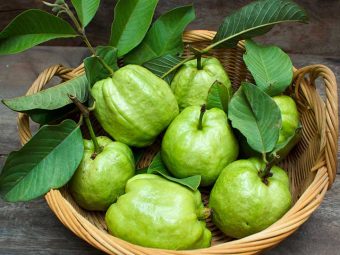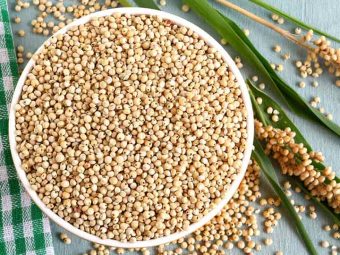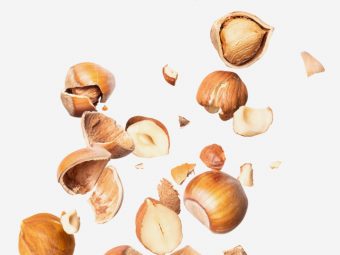[ad_1]
Winter melon, also known as Benincasa hispida, downtime melon, wax gourd, white pumpkin, ash gourd, and Chinese watermelon, is a fruit native to the corridor of Southern Asia. Winter melon benefits are gaining attention because of its unique nutrients. It comprises 96% water and is low in calories, fat, protein, and carbs. Yet, it is rich in fiber. In addition to vitamin C, ash gourd is a good source of flavonoids and carotenoids that may help protect body against cell damage and type 2 diabetes. Learn more about the nutrition, benefits, recipes, and side effects of winter melon here.
What Is Winter Melon?
Winter melons, botanically known as Benincasa hispida, are ancient fruits that grow on creeping vines belonging to the Cucurbitaceae family. The large fruits are native to Asia and are a medicinal and culinary component favored for their neutral flavor. Winter melons are known by numerous names worldwide. Some experts believe the fine, white coating on the melon, which reminded consumers of snow, is another explanation for the melon’s name. Though they’re botanically a fruit, winter melons are cooked and consumed as vegetables and are prevalently seen in curries and stir-feasts in Indian and Chinese cuisines.
Taste Of Winter Melon
The seeds, once cooked, have a nutty and neutral taste. Winter melons aren’t generally consumed raw. They have a mild, subtly grassy flavor. When cooked, the meat becomes transparent and softens. It becomes mellow if cooked for extended durations.
Winter melon is nutrient-dense. Learn more about its nutrients from the section below.
Nutritional Value Of Winter Melon
Winter melon is rich in vitamins, minerals, and organic compounds. It is low in sodium and saturated fat. Following are the nutrients present in 100 grams of winter melon (1):
| Water | 96.1 g |
| Energy | 13 kcal |
| Protein | 0.4 g |
| Carbohydrates | 3 g |
| Fibre | 2.9 g |
| Calcium | 19 mg |
| Vitamin C | 13 mg |
| Vitamin B2 | 1.3 mg |
| Magnesium | 10 mg |
Its nutrient profile is responsible for the many benefits of winter melons. Let us discuss them in the next section.
Health Benefits Of Winter Melons
1. May Help Manage Type 2 Diabetes
Winter melons are low in calories, and are ideal for weight watchers and those with diabetes.
In studies, winter melons could help reduce blood sugar in those with type 2 diabetes mellitus (2). In addition, vegetables from the Cucurbitaceae family offer beneficial fibers, β-carotene (pro-vitamin A), potassium, and vitamin C. Regularly consuming these can help manage diabetes mellitus (3).
Other research also suggests that regular intake of winter melon may help in the treatment of diabetes mellitus (4).
2. May Reduce Cancer Risk
Winter melon may reduce the threat of several types of cancers. The biochemical components in this fruit inhibit the action of carcinogens and also keep the malignant cells from spreading. The melon also contains carotenoids that reduce colon cancer risk (5).
In addition, winter melon seed extracts had shown significant antioxidant capacity. They help combat the harmful action of free radicals, which may otherwise elevate cancer risk (6). The seeds of winter melon are also rich in polyunsaturated fatty acids that may reduce cancer risk (7).
3. May Improve Eye Health
The antioxidants in winter melons help reduce oxidative stress in the retina. Also, with age, the vitamin C levels in the eye lens may diminish and lead to potential vision issues. Consumption of fresh winter melons may increase vitamin C levels in the lens (8).
However, numerous studies on the potential of vitamin C as a cataract curative have produced mixed results (9).
Winter melons also contain riboflavin, whose deficiency may cause night blindness. Adequate riboflavin intake can help prevent the condition (10).
4. May Promote Skin Health
Winter melons are a rich source of vitamin C and antioxidants that improve skin health. Vitamin C can be used topically in dermatology to treat and help changes associated with photoaging. It can also be used for the treatment of hyperpigmentation. This nutrient in winter melons protects the skin from oxidative stress. Ascorbic acid is the most abundant antioxidant in the skin and is the biologically active form of vitamin C (11). Vitamin C also exhibits skin brightening effects (12).
5. May Promote Heart health
The vitamin C in winter melons reduces cardiovascular complaints by fighting free radicals. Antioxidants like vitamin C inhibit LDL oxidation and reduce the risk of cardiovascular disease (13). Vitamin C deficiency is associated with an increased risk of cardiovascular conditions. In addition, vitamin C may slightly improve endothelial function (endothelium is the cellular tissue over the heart and blood vessels) (14).
These are the important benefits of winter melons. However, one must also consider their potential downsides. Learn more in the next section.
Side Effects And Allergic Reactions Of Winter Melons
May Aggravate Cold: Winter melon has a cold potency as per Ayurveda (15). Anecdotal evidence suggests that this may aggravate cold in some individuals. Hence, avoid their intake when you have a cold and consult your doctor.
May Aggravate Gastrointestinal Discomfort: Winter melon is rich in potassium. If consumed in excess, it may aggravate gastrointestinal discomfort and lead to nausea, diarrhea, and abdominal pain (16).
However, these side effects are associated with excess consumption of the melons, and usually subside on their own. Eating them in moderation helps reap the benefits. Know how to eat winter melon from the section below.
How To Eat Winter Melon
Winter melon can be cooked in stews, mists, and stir-fried and coddled dishes. Because the melon itself tastes plain and its texture absorbs flavor well, it’s frequently cooked with pork, funk, and other explosively seasoned constituents. It can be a great addition to salads and smoothies.
Selection And Storage
Always choose a winter melon with no bruises. Fresh winter melons are green with firm rinds. For storage, cut the melon, remove the white part containing the seeds, and place it in a vegetable storehouse vessel and store in the refrigerator. You can store it in the refrigerator for up to 4 days.
Winter melon can be cooked in different ways. Learn some tasty recipes from the section below.
Recipes
1. Chinese Winter Melon Soup
What You Need
- ½ pound of winter melon
- 4 dried shiitake mushrooms
- 2 cups of chicken broth
- 2 to 3 slices of ginger
- 1/4 mug of diced cooked ham
- Salt, to taste
- Pepper, to taste
- 1 green onion
Method
- Wash the melon thoroughly. Gently remove the skin, seeds, and pulp. Cut the melon into small pieces.
- Place the melon in a pot of water and bring it to a boil. Reduce heat until the melon is tender.
- Soak the dried shiitake mushrooms in a bowl of cold water for at least 10 minutes.
- Squeeze out any redundant water from the mushrooms and set them aside.
- To the pot, add the mushrooms, gusto, funk broth, and cooked ham. Add salt and pepper to taste.
- Simmer for 20 minutes and serve hot.
2. Ash Gourd Curry
What You Need
- 200 grams of winter melon
- 1 medium onion, diced finely
- 1 green chili, diced finely
- ½ tablespoon of mustard seeds
- ½ tablespoon of cumin seeds
- ½ tablespoon of turmeric
- 2 shoots of curry leaves
- ¾ cup of grated coconut
- ¼ teaspoon of coconut powder
Method
-
- Wash the winter melon and keep it ready with the diced onions and green chili.
- In a frying pan, toast the coconut powder for 20 seconds. Add the mustard seeds, and when they pop, add the cumin seeds. When the cumin seeds sizzle, add the onions. Fry the onions until they are transparent.
- Add the curry leaves and green chili.
- Now add the winter melon.
- Add the turmeric and sauté for a second.
- Cover with a lid and let the ash gourd steam slowly. Don’t add water as the ash gourd has enough water in it. Cook for 7 to 8 minutes till the winter melon is nearly done.
- Mix the coconut well with the veggie.
- Switch off the flame after 2 minutes.
Conclusion
Winter melon is an ancient fruit frequently eaten as a vegetable. If included as a part of the diet, it can help manage diabetes, reduce the risk of cancer, and promote eye, skin, and heart health. It can be an easy addition to any dish because of its taste. You can easily add winter melon to soups, salads, and smoothies. However, if consumed in excess, winter melon may aggravate cough and cold and may also cause issues with digestion. Hence, caution is advised. However, moderate consumption can offer benefits.
Key Takeaways
- Winter melon is botanically a fruit but is eaten as a vegetable.
- It is high in antioxidants and vitamins.
- Winter melon can promote overall health if included in the diet.
Sources
Related
LATEST ARTICLES
[ad_2]

















